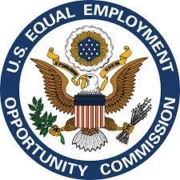The following is the latest health policy news from the federal government as of 2:30 p.m. on Tuesday, October 26. Some of the language used below is taken directly from government documents.
 Provider Relief Fund
Provider Relief Fund
HHS’s Health Resources and Services Administration (HRSA) has made 18 changes in its Provider Relief Fund FAQ that address Provider Relief Fund Phase 4 funding. They are:
- p. 7 – about returning Provider Relief Fund money
- p. 8 – for providers interested in receiving Provider Relief Fund money they previously rejected
- pp. 10 (two questions) and 14 (also two questions) – consideration for Provider Relief Fund grants for providers that have been through a merger or acquisition
- p. 22 – use of Provider Relief Fund and rural hospital payments
- p. 22 – cost-based reimbursement and Provider Relief Fund money
- p. 35 – late report submissions
- p. 61 – treatment of prior Provider Relief Fund payments in the calculation of Phase 4 payments
- p. 61 – mandatory inclusion of all TINs in Phase 4 applications
- p. 66 – deadline for submission
- p. 67 – selection of exempt payee code when applying
- p. 68 – selection of provider type
- p. 68 – reporting on net patient revenue
- p. 69 – ability to revise Phase 4 data after submission
- p. 69 – submitting more than one Phase 4 application
- p. 69 – accounting for prescription drug sales
Provider Relief Fund: Phase 3 Payment Reconsideration
HRSA is accepting requests for reconsideration from providers that believe their Provider Relief Fund Phase 3 payments were incorrectly calculated. Providers may not revise or correct their submitted application and the reconsideration will address only the calculation itself and not objections to the calculation methodology. Go here for further information. The deadline for submitting requests for reconsideration of Phase 3 is November 12.
 Centers for Medicare & Medicaid Services
Centers for Medicare & Medicaid Services
The FY 2022 Medicare inpatient prospective payment rule delayed addressing a proposed application process for new residency slots. CMS has now opened a comment period on the application form for related data collection. The Federal Register notice inviting public comment is available here and the proposed form itself can be found here. Appendix A is the application form open for public comment. Based on the form, it appears CMS is keeping the application in line with the original proposal, limiting the request for new slots to 1.0 FTE and requiring hospitals applicants to identify a Health Professions Shortage Area (HPSA) where that resident would spend more than 50 percent of his or her time at either the main hospital campus or a provider-based facility. Comments on this form must be received by CMS no later than December 21, 2021.
Equal Employment Opportunity Commission
The Equal Employment Opportunity Commission has posted information about what employers should know about COVID-19 and the Americans with Disabilities Act, the Rehabilitation Act, and other equal employment opportunity laws.
Stakeholder Events
Medicaid and CHIP Payment and Access Commission meeting – October 28-29
The Medicaid and CHIP Payment and Access Commission (MACPAC) will meet on Thursday, October 28 and Friday, October 29 beginning at 10:30 a.m. both days. Find the meetings’ agendas here and go here to register to participate in the virtual meetings.
CDC – Pediatric COVID-19 Vaccines – November 4
The CDC will hold a webinar on Thursday, November 4 to provide an overview of its recommendations and clinical considerations for administering COVID-19 vaccines to children between the ages of five and eleven years old. Go here for further information about the webinar and how to participate.
HHS – Monoclonals and More: Issues and Opportunities with Early COVID-19 Treatment Options – November 12
HHS’s Office of the Assistant Secretary for Preparedness and Response will hold a webinar on COVID-19 treatment with monoclonal antibodies on Friday, November 12 at 12:30 p.m. during which it will address some of the most current recommendations for use of monoclonal antibodies, upcoming therapies, and the challenges and opportunities that new therapies may pose in conjunction with monoclonal antibodies and other treatments (e.g., prioritization and distribution). Speakers also will highlight operational principles for a scaled strategy for use of these therapeutics in a scarce resource situation. For more information about the webinar and to register, go here.

 Provider Relief Fund
Provider Relief Fund Centers for Medicare & Medicaid Services
Centers for Medicare & Medicaid Services